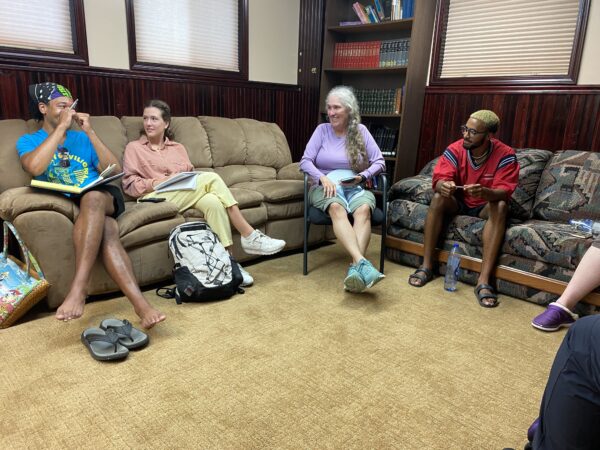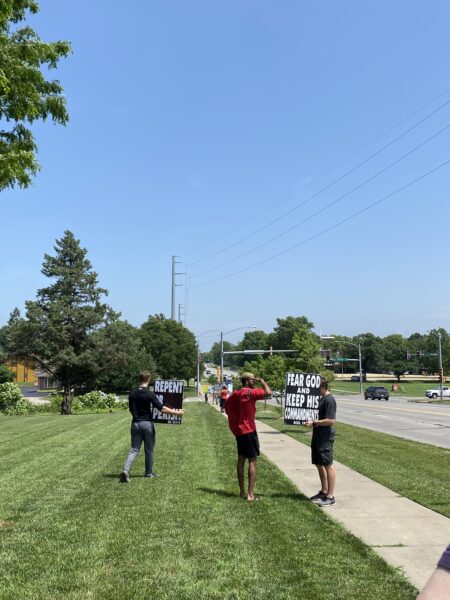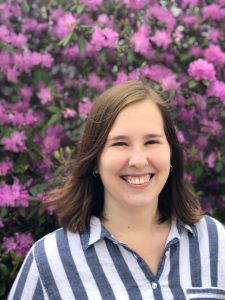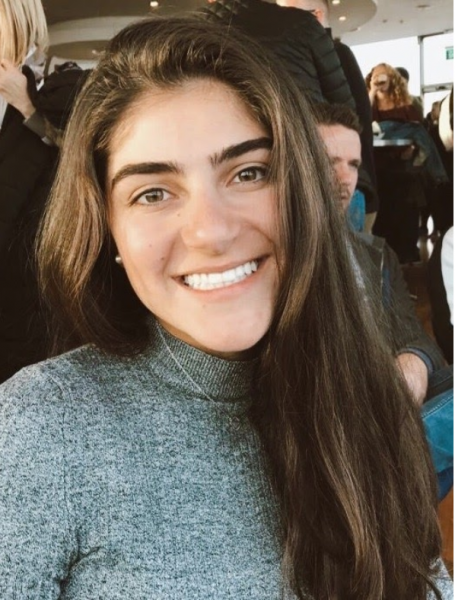While Topeka, Kansas may not be high on everyone’s list of travel destinations, I was thrilled when Dr. Gray invited me to conduct field work interviewing members of the Westboro Baptist Church. I am so grateful to have had the opportunity to challenge my perspectives and improve my research skills in a unique setting. I have been a research intern with the Empathy and the Religious “Enemy” for almost 2 years. Through my work, I have practiced critical distance by taking the position of a non judgemental outsider and learned how to avoid using prescriptive language by refraining from making moral or theological statements. I was surprised by how much I felt that having possessed these skills benefited me when interacting with church members in person.
One of the most fascinating parts of the field work was noticing how my preconceived notions of the church members were contradicted by how I felt when interacting with them in person. The church has historically had a significant amount of representation in the media in response to their public protesting and anti-LGBT, anti-military, and anti-Catholic beliefs. I had seen videos of Westboro Baptists shouting homophobic slurs and other controversial language, which caused me to expect hostile and rude behavior from the church members. To my surprise, many of them were excited to engage in conversations and let us see a glimpse of their lives. We were often greeted with hospitality; one church member, Margie Phelps, even offered us homemade zucchini muffins when we interviewed her in her home. This simple gesture made me feel welcomed in an environment in which I would typically feel rather uncomfortable, as I was in a stranger’s home with a woman whom I had no idea how to interact with. Over the course of 4 days in Topeka, I learned practical skills, such as how to foster productive conversations and ask probing questions that will lead our team to develop connections with the church members. I also developed less tangible skills, as I tuned into my emotions and found ways to relate to those with whom I disagree. I have surrounded myself with like-minded individuals for my whole life, and I realize now how important it is for me to go out of my way to expose myself to other perspectives, cultures, and lifestyles.
As someone who doesn’t typically enjoy “small talk”, I knew that this research would be out of my comfort zone, as I was challenged to engage with people with whom I thought I had nothing in common. However, ultimately this challenge allowed me to learn more about myself and others. I gained confidence in my own abilities as an interviewer, researcher, and team member. I expected to struggle to come up with questions to ask, and I dreaded the inevitable awkward pause in a conversation. To my surprise, I found that the opposite was true, and I usually had a hard time stepping back to give someone else a turn. We collected over 10 hours of interview footage, plus many more minutes spent engaging in side conversations between our scheduled meetings, and I was easily able to maintain engagement the entire time and often felt like I played an active role in the discussions.
I felt the greatest sense of empathy on this trip during moments when I sensed familiarity. One night, we went to Shirley Phelps’ (WBC member) house for dinner with her family. I was transported back to my childhood, and I immediately thought about how my family would attend dinner parties at neighbors’ houses. I was reminded of being forced to hang out with kids I didn’t know well, and how we always found ways to play together and have fun. At Shirley’s, we chatted with 3 of her sons (and a fiance) about all kinds of things, such as the current popular movies, school courses, and even anime. It was a situation so unique in nature that I know I would likely never experience this again, and I found myself feeling sad as we left the get together because I had felt a personal connection with these people who I had just met. That evening, I felt empathy as the evident familiarity reminded me of the many life experiences that I did share with the WBC members, who I had initially perceived as so different from me.
We had the unique opportunity to travel with church members to Kansas City for a picket, which presented the opportunity to converse in the car for a few hours. I rode in the car with Tim Phelps and several other students, and I was surprised by the familiarity I felt at that moment. Going into the car ride, I was nervous as I expected not to have any idea what to talk about. I soon realized that I had done this a million times before – it reminded me exactly of riding in the back seat of my friends’ parents’ cars as we carpooled to after school activities. The small talk about weather, local sports, and electric cars felt like a conversation that I could have had with anyone’s Dad, and I felt a personal connection with Tim as I was reminded of many relationships I have in my own life. Looking back, the reason that I was nervous was due to the preconceived notion that I could never have a comfortable conversation with Tim Phelps in a casual setting because we have extremely different values and ways of life. The experience led me to modify the judgments that I had made, and I was able to see a side of Tim that was different from what the public typically sees.
One of my main takeaways from this trip is that you cannot pretend people who are different from you don’t exist and that having different values does not make someone less of a person. It is incredibly important for me to immerse myself in difficult, uncomfortable, and unique situations so that I can not only enhance my empathy for others but also to learn more about myself and grow as an individual. There were certainly times during my time at Westboro that I felt extremely out of place, such as when everyone mingled after the church students and several other students and I had to nudge our way into conversations. At times, the trip felt emotionally draining and I found myself nervous of saying the wrong thing, but I adjusted to this feeling and became more comfortable as the weekend progressed. I enjoyed working with all of the other ERE student researchers on the team, and we learned a lot from each other in various ways throughout the trip. The team was composed of a variety of different people, including from science majors like myself, humanities majors, and a Miami graduate. Our unique identities and interests led us to have a variety of perspectives when we discussed and analyzed each day’s activities, and we built up a sense of trust with each other as we collectively processed our emotions.






